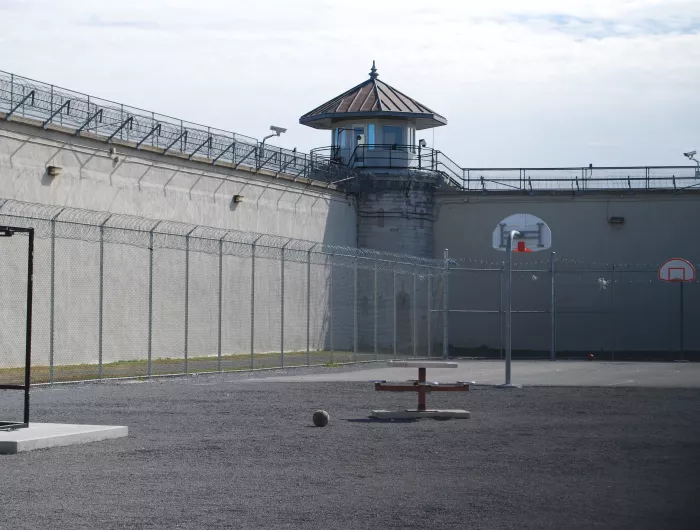The public health implications of prison and jail food

Larry Farr - unsplash.com.
Everyone deserves access to healthy and appetizing food, but this ideal is far from reality for many incarcerated people in the United States. In 2020, CSPI’s partner organization Impact Justice published the first national investigation of the food environment in state prisons, finding that, in general, the experience of eating in confinement is profoundly dehumanizing. The same year, I facilitated an expert workgroup on behalf of CSPI that identified no shortage of opportunities to improve food and nutrition in adult and youth correctional facilities.
In short, the current system prioritizes the lowest cost over the health and dignity of people in custody—states spend between $1.00 and $4.50 per day to feed each person in prison. With these kinds of financial constraints, it is not surprising that correctional facilities often fall short of providing a healthy dietary pattern—for example, with insufficient servings of fruits and vegetables and excessive sodium. Inadequate resources and oversight also contribute to meals that are improperly cooked, contain spoiled food, and are generally unappetizing. The poor quality of the institutional meals leads individuals with sufficient means to rely on the commissary shop for most of their meals, which is hardly an optimal solution: commissaries are notorious for their lack of healthy options, mainly offering expensive, shelf-stable snacks and beverages high in saturated fat, added sugar, and salt. The status quo is also inequitable, as those without financial resources don’t even have the option to choose the unspoiled, tastier commissary offerings.
CSPI’s work to improve the food environment in correctional facilities advances our vision of “a healthy population with reduced impact and burden of preventable diseases and an equitable food system that makes healthy, sustainable food accessible to all.” The connection between prison food and public health is relatively straightforward. As of 2021, almost 2 million people were incarcerated in prisons, jails, and other detention facilities in the United States. While that number has decreased in the last few years, we still incarcerate a greater proportion of our population than any other country. Incarcerated people are dependent on correctional facilities to meet all of their nutritional needs. Another 4.9 million Americans have a history of incarceration in federal or state prison and relied on the institutional food for an extended period of time. A healthy diet is linked to a lower risk of diabetes, heart disease, some cancers, and other chronic diseases, whereas a poor diet can lead to lower quality of life, premature deaths, and higher healthcare costs over time. As such, the quality of food served in correctional facilities has a meaningful impact on the long-term health of a large segment of the population, especially those with lengthy sentences.
Prison food also has implications for health equity. Black, Latine, and Native Americans are disproportionately incarcerated compared to White Americans. The same minoritized communities that are subject to overincarceration are also burdened with higher rates of chronic diseases that can be influenced by diet. The food conditions in correctional facilities can exacerbate or mitigate these disparities.
While improving food quality in prisons is a priority, I would be remiss if I did not acknowledge that our ultimate goal in this realm should be to reduce the number of people incarcerated. Public health experts increasingly recognize mass incarceration as a social determinant of health and a driver of health inequities. The view that overhauling the carceral system should be a priority for advancing health equity is becoming more prominent in the public health community. At the same time, it is vital that we minimize harm to people already involved in the criminal legal system and ensure their healthy return to their communities. Improving the correctional food environment can be an important way to advance health and dignity for incarcerated people as we work for more transformational system reform.
And there are promising signs of change. A majority of District of Columbia Council Members, led by Council Member Brooke Pinto, recently introduced the Food Regulation Ensures Safety and Hospitality Specialty Training Aids Re-entry Transition and Success (FRESH STARTS) Act of 2023. This bill would take meaningful steps to improve food conditions for people in custody of the DC Department of Corrections, including creating science-based nutrition standards and requiring stronger oversight of the jail food service operations. The bill was developed in collaboration with community members, based on firsthand accounts of formerly incarcerated individuals. I look forward to working with our allies in DC to ensure this legislation passes and sets a precedent that other jurisdictions can follow.
Tags
Topics

